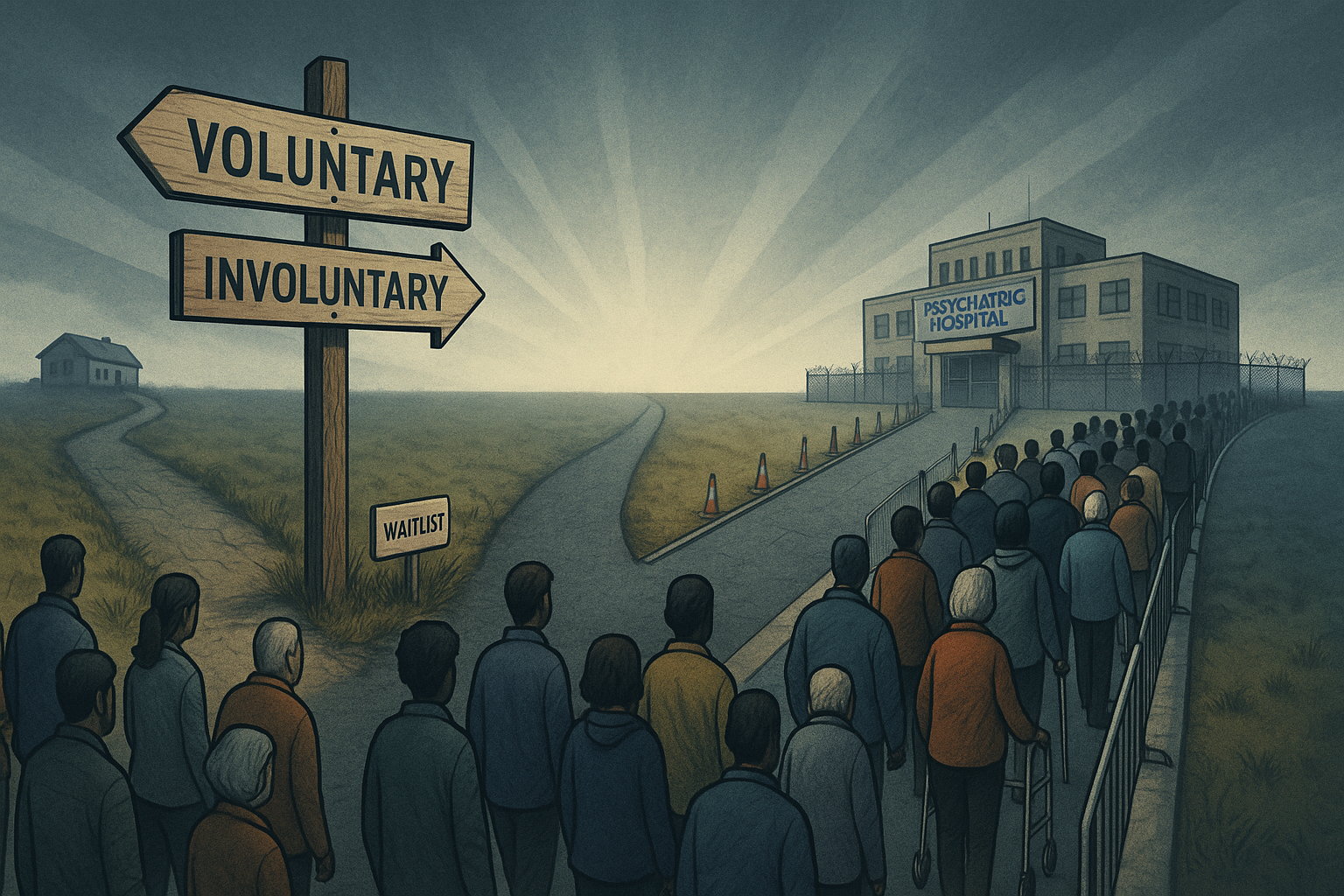A new qualitative study from British Columbia in Canada examines how service users and clinicians are impacted when mental health systems shift toward coercive involuntary treatments.
The authors interviewed individuals who had been detained and treated under the province’s Mental Health Act, as well as the professionals responsible for its application. Their accounts describe a system that funnels crises toward involuntary care when community support is scarce and hospitals are under pressure.
Across five focus groups with people who had experienced involuntary treatment and interviews with clinicians, lawyers, and peer workers, the authors identified seven themes. Participants cited a shortage of voluntary, community-based care; fear, trauma, and lingering distrust tied to coercive practices; the promise of peer support; an “all or nothing” approach to consent; a narrow menu of hospital interventions; stigma and discrimination; and providers’ doubts about the evidence behind mandated care.
“I feel like that we get a little bit more backed into a corner to do involuntary treatment,” one clinician said, describing how gaps in housing, income, and follow-up services shape decisions.
Another participant, reflecting on seclusion and injections, called it “a pretty brutal assault to one’s human dignity.
The preprint, posted on medRxiv, comes from Mary Elizabeth Snow and Amy Salmon at the University of British Columbia’s Faculty of Medicine and the Centre for Advancing Health Outcomes in Vancouver; Jenyo Banjo is the corresponding author. Co-authors include Colleen Varcoe of UBC’s School of Nursing and Marina Morrow, a professor at York University and Director of the Mad Studies Hub. The paper has not yet been peer reviewed.
















When is ANYTHING on this website going to be about science or social justice? IT’S ALL JUST PSYCHIATRY NOW. THIS DOESN’T HELP ANYONE. THIS WEBSITE IS HURTING THE PEOPLE IT’S SUPPOSED TO BE FOR. WHY WON’T YOU DO ANYTHING ABOUT IT?
Report comment
Seriously, this website is horrible. What good does this article do? Who here was in doubt that involuntary psychiatry is harmful? Take the “social justice” off the tagline, it’s a joke.
Report comment
I disagree with at least part of the comment seeming to imply that the article isn’t useful or helpful. The article seems to be so very useful and helpful, in my opinion. While many people don’t have any doubt that involuntary hospitalization tends to be harmful, there are so many people who tend to justify involuntary hospitalization, for some of the reasons, stated in the article, such as due to a perception of lack of alternatives. Also, the legal “standard of care” for some verbalizations and/or behaviors has seemed to often be involuntary hospitalization.
In addition, professional disciplines tend to promote evidence-based assessments, interventions, and decisions, so the more “evidence” there is, often the better. So, I think we need more articles like the said article utilizing different populations, samples, research designs, methods, questions, etc and need qualitative, quantitative, and mixed methods studies. And, the more triangulation of data and research methods, the better too. Also, people often tend to question whether past research may pertain to more recent times, so newer studies are often very helpful too.
Also, i think the article comprises an aspect very relevant to “social justice”, so i think that any tagline of “social justice” is very appropriate.
Report comment
“They call for an ‘urgent movement away from coercive care practices’ and for investments that make voluntary, low-barrier, community supports a reality and accessible.”
I agree, giving any faction of society the right to play judge, jury, and executioner to others within society – which the “invalid” psych professions were unwisely given – needs to end.
Report comment
put them all in an asylum. half the people will be in the other half will guard them………and from time to time give them drugs….
sure that sound good to me…well not to me but to some corporations.
Report comment